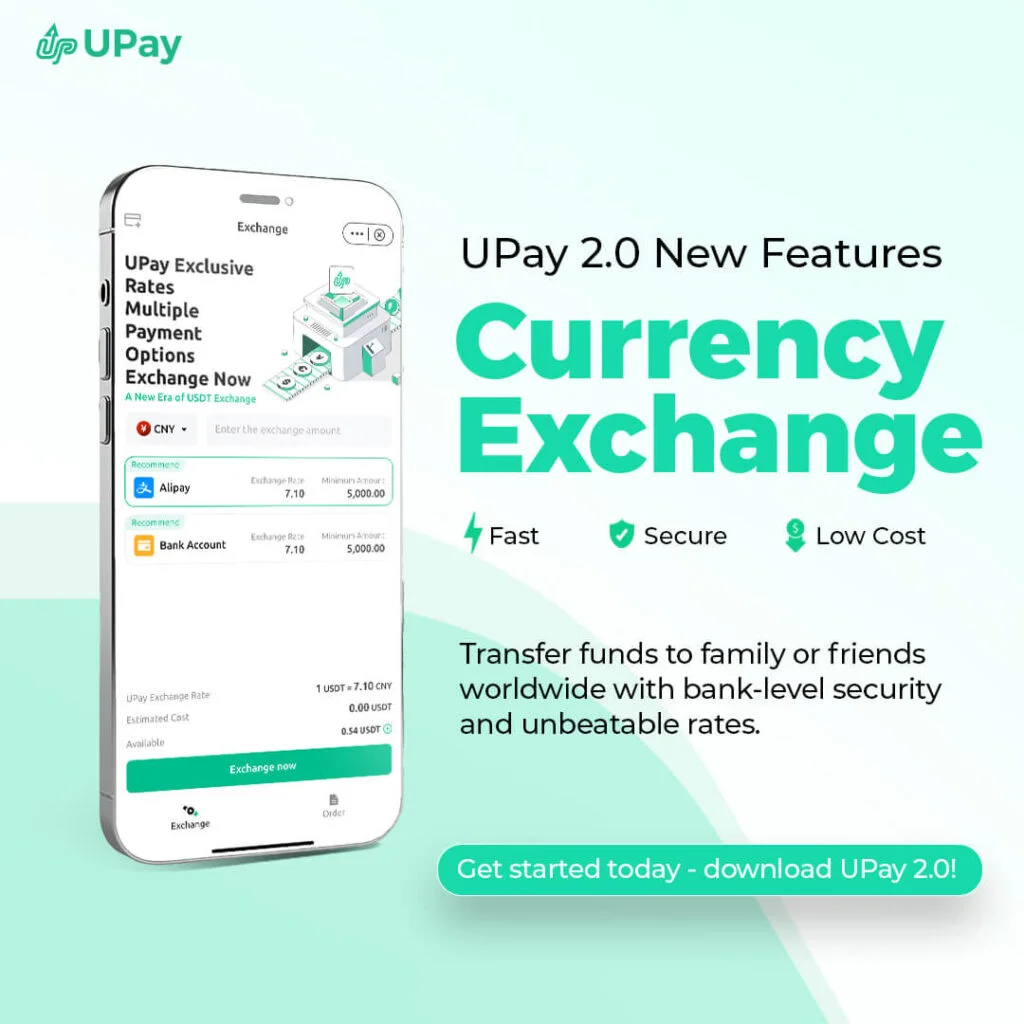Malaysia is steadily embracing the future of finance, with cryptocurrency gaining traction among businesses and consumers alike. If you’re looking to spend your digital assets while exploring or living in Malaysia, this guide covers where and how to use crypto safely and efficiently in the country.
Key Takeaways
- Crypto is not legal tender; regulated trading is allowed under the Securities Commission Malaysia.
- Popular businesses accepting crypto include Rice Kerabu Jijah, Mahkota Biryani, Goobat, and Vape Club International.
- Bitcoin (BTC), Ethereum (ETH), Litecoin (LTC), and Dogecoin (DOGE) are commonly used for payments.
- Market volatility can impact crypto spending, making stablecoins a safer option.
- Regulatory uncertainty and a lack of consumer protection create challenges for crypto adoption in Malaysia.
An Overview of Crypto Spending in Malaysia
Malaysia is actively developing its blockchain and cryptocurrency ecosystem. Universities and educational institutions offer blockchain courses, while government agencies and financial institutions promote blockchain innovation.
Cryptocurrency adoption in Malaysia has also seen significant growth over recent years. As of the first quarter of 2024, over 840,000 Malaysians have opened accounts with regulated digital asset exchanges, comprising more than 72% of the investor segment. This surge indicates a rising interest in digital assets among Malaysians.
Despite this growing interest, Malaysia does not recognize cryptocurrencies as legal tender. The government cites concerns over price volatility and potential cybersecurity threats as reasons for this stance.
Bitcoin (BTC), Ethereum (ETH), and other cryptocurrencies are commonly traded, but their use for everyday transactions remains limited. However, a growing number of businesses are starting to accept crypto payments, particularly in sectors such as food, healthcare, and e-commerce. Establishments like Rice Kerabu Jijah, Mahkota Biryani, Goobat, and Vape Club International now offer customers the option to pay with digital currencies.
The potential for more crypto spending in Malaysia will depend on continued regulatory clarity, wider merchant acceptance, and advancements in payment technology.
Best Places to Spend Crypto in Malaysia
| S/N | Best Places to Spend Crypto in Malaysia | Category |
| 1. | Rice Kerabu Jijah | Food and Drinks |
| 2. | Mahkota Biryani | Food and Drinks |
| 3. | Goobat | Health |
| 4. | Vape Club International | Health |
Rice Kerabu Jijah
Nasi Kerabu Jijah, located in Kelantan, is the first establishment outside of Kuala Lumpur and Selangor to embrace cryptocurrency payments. This popular eatery offers a range of traditional Malaysian dishes, including nasi kerabu, grilled fish, and more. Customers can pay using cryptocurrencies such as Bitcoin (BTC) and Dogecoin (DOGE).
Mahkota Biryani
Mahkota Biryani Restaurant, situated in Wangsa Maju, Kuala Lumpur, is a top destination for those craving Johor-style biryani. The menu features red chicken, black meat, and lamb biryani, with prices starting as low as RM12 per dish. While the restaurant offers delivery through GrabFood and Foodpanda, dine-in customers also have the option to pay using Cheesecoin for their flavorful meals.
Goobat
Goobat is Malaysia’s first online pharmacy to accept Bitcoin (BTC) through its e-commerce platform. Customers can purchase a wide range of products, including dietary supplements, hygiene items, health and beauty products, and medications, all payable with BTC.
Vape Club International
Formerly known as Vape Club Malaysia, Vape Club International is one of Asia’s pioneering e-liquid subscription services. The company offers a variety of products, including nicotine-free e-liquids, nicotine salts, and e-liquids with 3mg and 6mg nicotine levels. Their products, which contain ingredients like propylene glycol, vegetable glycerin, and other chemicals, cater to diverse vaping preferences. In addition to accepting Bitcoin (BTC) and Ethereum (ETH), the company also supports Litecoin (LTC) payments via Coinbase.
Tools Used for Spending Cryptocurrency
Source: Freepik
In Malaysia, individuals have several options to spend their cryptocurrency holdings:
Peer-to-Peer (P2P) Payments
P2P payments involve transferring cryptocurrency directly from one user’s digital wallet to another’s, without intermediaries. This method offers direct control over funds and immediate settlement. Users can utilize various P2P platforms available in Malaysia to facilitate these transactions.
Crypto Debit Cards
Crypto debit cards enable users to spend their digital assets at merchants that accept traditional debit or credit cards. These cards automatically convert cryptocurrency into fiat currency at the point of sale, allowing seamless transactions. Upay is a good example of a crypto debit card that allows you to spend crypto in Malaysia.
Cryptocurrency ATMs
Cryptocurrency ATMs allow users to buy and sell digital currencies using cash or debit cards. In Malaysia, these ATMs provide a bridge between physical currency and digital assets, offering a familiar interface for users to convert their cryptocurrency holdings into cash or vice versa. There are approximately 10 Bitcoin ATMs in Malaysia, primarily located in Kuala Lumpur.
Read Also: Best Places to Spend Crypto in Thailand
Tips for Spending Crypto in Malaysia
Source: Freepik
Double-check Transactions
Cryptocurrencies like Bitcoin have irreversible transactions to protect against fraud and double-spending. This means if you type in the wrong recipient address or overpay, it can never be undone. Therefore, always double-check the amount you’re sending, as well as the receiver and sender’s addresses, to avoid an irreversible mistake.
Security Measures
Security is paramount when dealing with cryptocurrencies. Use platforms with strong security protocols such as two-factor authentication (2fa) and cold storage options. Ensure your wallet has strong security features and keep your private keys safe. Avoid sharing your private keys or recovery phrases with anyone.
Regulatory Compliance
Choose platforms that comply with local regulations. Licensed exchanges are more likely to offer better security and customer protection. In Malaysia, for example, look for platforms and businesses regulated by the Securities Commission Malaysia.
Market Volatility
Cryptocurrencies are known for their volatility. Prices can fluctuate wildly in short periods, so be prepared for significant changes in the value of your investments. If you plan to use crypto for everyday spending, consider using stablecoins or converting to MYR before making payments to avoid sudden losses.
Challenges of Spending Crypto in Malaysia
Source: Freepik
Transaction Speed
Different cryptocurrencies and platforms have varying transaction speeds. While some transactions can be completed in minutes, others might take hours or even days, depending on network congestion and other factors. Research the typical transaction times for the cryptocurrency you plan to invest in.
Regulatory Uncertainty
While Malaysia has established a regulatory framework for digital assets, gaps remain in comprehensive legislation tailored explicitly to cryptocurrencies. This creates uncertainty for businesses, as evolving policies and enforcement actions may affect operational stability. Companies must navigate complex licensing requirements, adhere to financial regulations, and comply with the securities laws of multiple regulatory bodies, like SCM and BNM.
Consumer protection concerns
A critical issue in Malaysia’s Digital Assets sector is the absence of clear consumer protection measures. Individuals are vulnerable to fraud, scams, and market manipulation without a dedicated legal framework to protect investors. This uncertainty complicates crypto businesses’ efforts to establish trust with potential customers, although SCM has implemented measures to reduce investor vulnerability.
Conclusion
Crypto spending in Malaysia is gradually expanding, but challenges remain. While digital assets are not considered legal tender, the government allows regulated trading through the Securities Commission Malaysia. This ensures a level of security for investors and businesses dealing with cryptocurrencies.
Several businesses, including Rice Kerabu Jijah, Mahkota Biryani, Goobat, and Vape Club International, have embraced crypto payments. Bitcoin (BTC), Ethereum (ETH), Litecoin (LTC), and Dogecoin (DOGE) are among the most widely accepted options. However, market volatility and regulatory uncertainties create barriers to widespread adoption. Stablecoins offer a safer alternative for those looking to avoid price fluctuations.
Consumers and businesses must navigate evolving regulations and security concerns when using cryptocurrency.
With increasing adoption and clearer regulations, crypto spending in Malaysia could become more common. However, businesses and individuals must stay informed about legal requirements and best practices to protect their assets.
FAQs
Is cryptocurrency legal in Malaysia?
Crypto trading is legal, but digital assets are not recognized as legal tender.
Where can I spend cryptocurrency in Malaysia?
Businesses like Rice Kerabu Jijah, Mahkota Biryani, Goobat, and Vape Club International accept crypto.
Which cryptocurrencies are widely accepted?
Bitcoin (BTC), Ethereum (ETH), Litecoin (LTC), and Dogecoin (DOGE)are among the most used.
Is it safe to spend crypto in Malaysia?
Yes, but users should take precautions, such as enabling two-factor authentication and using regulated platforms.








